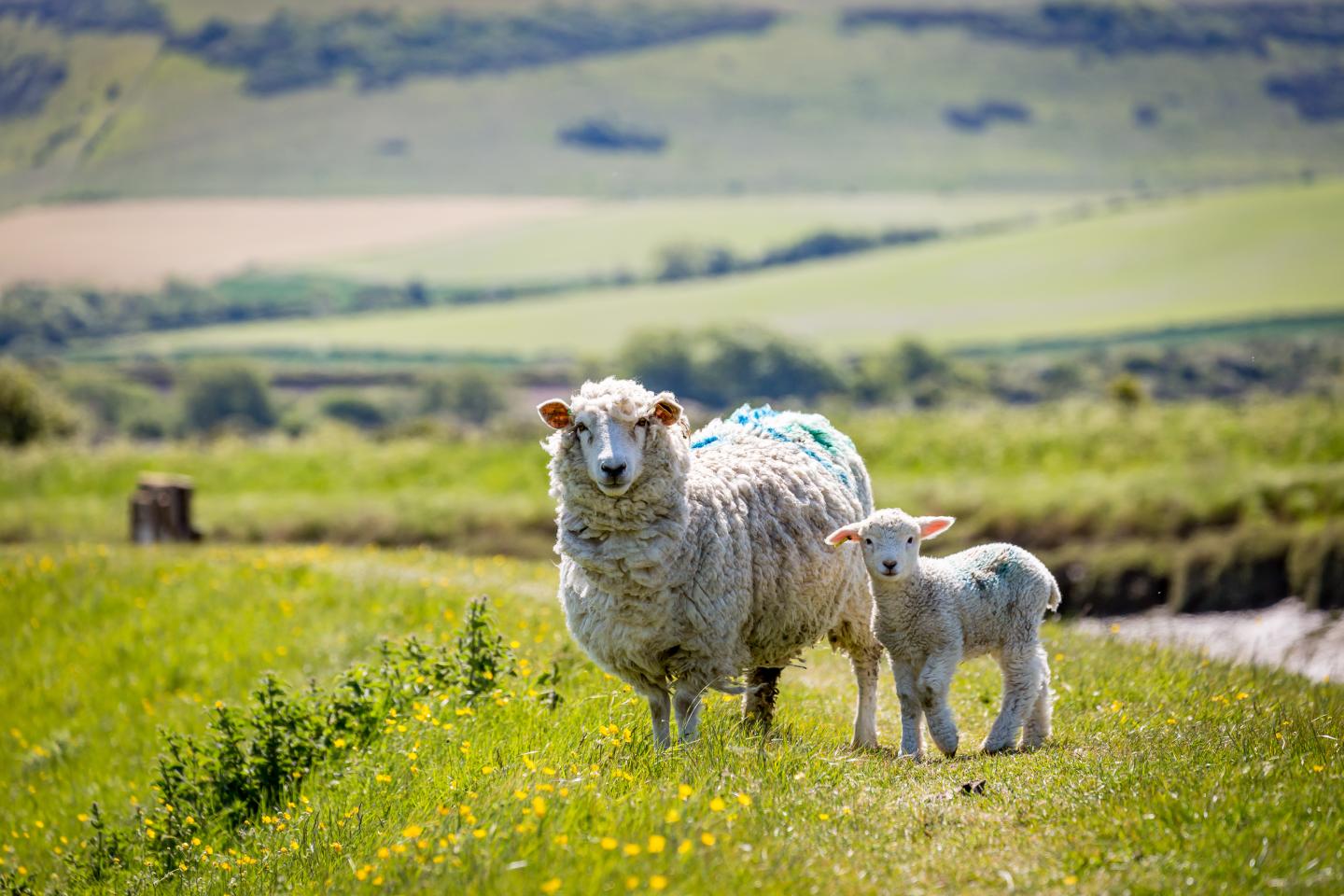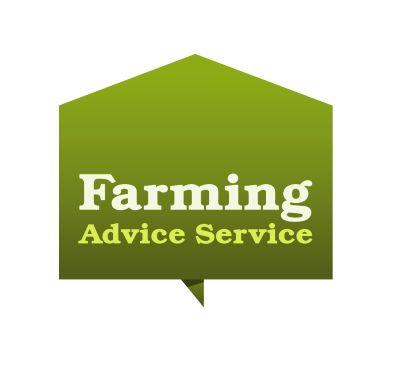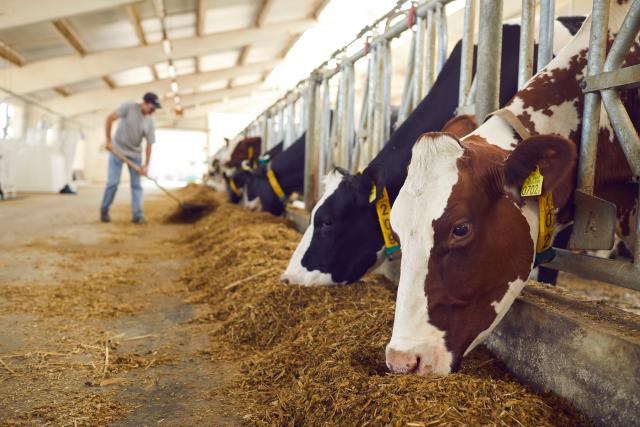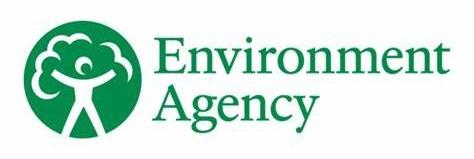
Thank you for continuing to subscribe to our monthly newsletter. We hope you continue to find the content useful and we welcome any feedback or suggestions on topics that you would like to see covered in future editions of the newsletter.
FAS technical advice line: 03000 200 301
- Key dates to be aware of…
- Please complete the FAS User Survey
- How can we help you?
- FAS Succession Planning resources
- Trees on farm: Agroforestry / SFI update
- How a Northamptonshire dairy farm made improvements to its silage stores
- Working with Catchment Sensitive Farming for 20 years
- Environment Agency Updated prospects for irrigation- forecast for 2025
- Updates from the Defra Farming blog and industry announcements
- Stay up to date with us
If your farmland is located within a Nitrate Vulnerable Zone (NVZ), by 30th April each year you must make a record of:
- the numbers and type of livestock you kept in buildings or on hard standing during the previous slurry/manure storage period
- the dates for the start and end of use and locations of any field sites you use for storing solid manure.
You do not need to record the start and end dates for your use of field sites separately if you record them on your risk map. You must keep these records for 5 years. (GOV.UK)
In case you missed them...
If you hold a water abstraction licence, from 1 April the Environment Agency will generate and send you your annual bill (or first-part charge if you hold a two-part tariff agreement) for the forthcoming financial year (GOV.UK)
The burning season for heather, rough grass, bracken, gorse or vaccinium is:
• 1 October to 15 April in upland areas
• 1 November to 31 March in other areas.
(GOV.UK)
If you hold a winter or all year-round water abstraction licence (authorising abstraction outside the period April to October), the deadline for submitting water abstraction returns to the Environment Agency is 28th April (subject to the terms of your license). (GOV.UK)
For more details about the information provided in the key dates table, visit the Rules for Farmers and Land Managers and the relevant pages of GOV.UK.
Key dates for annual SFI declaration submission
To assist Sustainable Farming Incentive (SFI) agreement holders, the Rural Payments Agency (RPA) have outlined the opening and closing dates for the SFI annual declaration submission based on the start date of the agreement:
| Agreement start date | Declaration period opens | Declaration period closes |
|---|---|---|
| 1 May 2024 | 1 March 2025 | 30 April 2025 |
| 1 June 2024 | 1 April 2025 | 31 May 2025 |
| 1 July 2024 | 1 May 2025 | 30 June 2025 |
| 1 August 2024 | 1 June 2025 | 31 July 2025 |
| 1 September 2024 | 1 July 2025 | 31 August 2025 |
| 1 October 2024 | 1 August 2025 | 30 September 2025 |
| 1 November 2024 | 1 September 2025 | 31 October 2025 |
| 1 December 2024 | 1 October 2025 | 30 November 2025 |
| 1 January 2025 | 1 November 2025 | 31 December 2025 |
We would be grateful if you could spare a few minutes to complete the Farming Advice Service User survey. The questions include multiple choice and free-text options, asking for your views on the services we provide and suggestions on how they could be improved.
There have been some new developments in the FAS over the last 12 months and you may have seen some promotional activity on the new FAS partnership with Catchment Sensitive Farming (CSF). This survey includes additional questions about this promotional activity and the new format of our newsletter, on which we would value your views.
The survey will be open until 30 May 2025.
Complete the FAS User Survey here


Free and confidential advice
The FAS is funded by the Department for Environment, Food and Rural Affairs (Defra). We provide free, confidential advice to help farmers and land managers in England understand and meet the legal requirements in English law around certain farming activities to protect people, livestock and the environment. We update the farming sector on relevant government farming policy that is applicable in England and on the actions that can be taken to help farmers comply with the relevant regulations.
Our website hosts our previous newsletters, technical resources and webinars covering various topics in more detail.
Contacting the advice line:
Farmers requiring telephone advice can contact the FAS technical advice line on 03000 200 301, Monday to Friday, between 08:30 and 17:00. The Rural Services Helpline provides a single number for all FAS, Rural Payments Agency (RPA), Animal and Plant Health Agency, Natural England and forestry enquiries.
You can also email enquiries to advice@farmingadviceservice.org.uk. Our helpline team aims to respond to all telephone and email enquiries within one working day.
The advice given to individual farmers is confidential – we do not disclose any personal or individual information or data obtained during advisory activities.
You may have noticed the option to talk to our helpline team through LiveChat function on our website is no longer available. We are pausing this function for the time-being, but you can still talk to our helpline team by email or phone.
You can now find new Succession Planning resources on the Farming Advice Service webpages:
Join the Farming Advice Service and Heather Wildman, Succession Specialist at Saviour Associates, for a webinar on Succession Planning in Challenging Times, with expert insights from the Farming Community Network (FCN).
You can listen to the edited audio from this webinar on our podcast:
Read our article Navigating farm succession: a practical guide for farmers in the Technical Resources section of the FAS website.
Trees on Farm: Agroforestry / SFI update
On Tuesday 11 March the government stopped accepting new applications for the Sustainable Farming Incentive (SFI24). You can read the Defra blog here.
What this means for agroforestry
The following SFI actions are now closed for new applications:
- Maintain ‘very low density’ in-field agroforestry on less sensitive land (AGF1)
- Maintain ‘low density’ in-field agroforestry on less sensitive land (AGF2)
Existing SFI agreements will continue. If you have an agreement including agroforestry actions, you should continue to implement your agreement for its remaining duration, and you’ll continue to get paid.
The following Countryside Stewardship Higher Tier actions will be available for application this summer:
- Managing ‘very low density’ in-field agroforestry on more sensitive land (CAGF4).
- Managing ‘low density’ in-field agroforestry on more sensitive land (CAGF2).
- Managing 'medium density' in-field agroforestry (CAGF3).
- Managing 'high density' in-field agroforestry (CAGF1).
Initially, applications will be by invitation only on a rolling monthly basis. The RPA will contact you directly to start the pre-application process. You must have an approved PA4 agroforestry plan, and approval letter from the Forestry Commission to be eligible to apply for CSHT capital and revenue grants.

The Capital Grants scheme will re-open for new applications in summer 2025. Limits will be set on how much you can apply for in each of the 4 categories. The new limits will be:
- £25,000 for water quality
- £25,000 for air quality
- £25,000 natural flood management
- £35,000 for boundaries, trees and orchards
The cap does not apply to capital plans.
If you’re considering an agroforestry system, you should complete an agroforestry plan (PA4) as the first step. This is available to apply for and further information can be found here.
If you would like to discuss agroforestry with the Forestry Commission, email: GRNationalTeam@forestrycommission.gov.uk. To help your email reach the relevant Agroforestry Woodland Officer for your area, title your email as: ‘Agroforestry: your county name and postcode’.
A routine Environment Agency (EA) farm inspection identified issues with a Northamptonshire Dairy farm’s silage storage, so the EA Officer worked with the farmer to make improvements.
The farm’s four adjoining silage clamps did not have adequate perimeter drainage at their rear. This meant that silage effluent was not being fully contained and collected, but rather leaking off the concrete pad and onto the land.
The farmer acknowledged the issue with the silage storage and sought advice from the EA Officer about whether his plans to extend the silage bays (to increase silage capacity) would also be a good time to make the necessary changes for the effluent containment. The EA Officer agreed with the suggested approach, and sent some example photos of other compliant silage clamps to help demonstrate some of the different options.
The planned works involved extending all four clamps through additional concrete flooring and walls and then installing a perimeter drainage channel to collect any effluent and then feed it to the nearby slurry store.

Results
The works also needed significant investment and a long timeframe, but by working with the EA Officer on the plans, the farmer was able to agree interim contingency measures through the use of concrete blocks to contain the run-off.
In addition, the farmer was able to ensure that the next cut of silage – which took place before the longer-term works had been completed – was kept within the bounds of the concrete pad. The work was completed in the summer months around 20 months after the initial inspection, and pictures of the completed works were sent to the EA as proof.
John Renner, from North Bellshill Farm, is a mixed farmer who has worked closely with his local Catchment Sensitive Farming (CSF) adviser and LEAF (Linking Environment and Farming) for almost two decades.
John’s approach has been to combine strong environmental practices with sound practical farming, “We work with the local environment at all times. We try to be as sustainable and as regenerative as you could ever possibly be.”
We revisited North Bellshill Farm to look at how John and his local CSF adviser of 20 years have worked together to put sustainable farming into practice.
CSF offers advice and training to help farmers produce food in a way that protects their local water, air and soil. All our advice is confidential, impartial and free for farmers.
To contact your local CSF team or attend an event near you, visit farmingadviceservice.org.uk/csf
The EA has provided an update to the 2025 irrigation prospects for England. The prospects are expected to be in the range of GOOD to MODERATE for this spring and summer. This downgrade in prospects from GOOD since the Initial forecast at the end of February reflects a dry March and early April. More information including Area detail is available at updated irrigation forecast for 2025.


Defra regularly updates the Farming blog. Please subscribe to the blog to ensure you receive all the latest news.
Government extends ban on personal meat imports to protect farmers from foot and mouth disease
Since 12 April, travellers can no longer bring cattle, sheep, goat, and pig meat, as well as dairy products, from EU countries into Great Britain for personal use. The Government has taken these measures to protect the health of British livestock, the security of farmers, and the UK’s food security, following a rising number of cases of foot and mouth disease across Europe.
These new EU-wide restrictions better safeguard the UK against the changing disease risk, and provide clear rules for travellers, helping them to comply with the regulations.
Whilst FMD poses no risk to humans and there are no cases in the UK, it is a highly contagious viral disease of cattle, sheep, pigs and other cloven-hoofed animals such as wild boar, deer, llamas and alpacas, and the outbreak on the continent presents a significant risk to farm businesses and livestock. FMD can cause significant economic losses due to production shortfalls in the affected animals, as well as loss of access to foreign markets for animals, meat and dairy.
The UK Chief Veterinary Officer is urging livestock keepers to remain vigilant to the clinical signs of FMD which can vary depending on the animals. In cattle the main signs are sores and blisters on the feet, mouth and tongue with potentially a fever, lameness and a reluctance to feed. In sheep and pigs, signs tend to manifest with lameness with potential for blistering. Read about how to spot foot and mouth disease and report it.
FMD is a notifiable disease - you are legally required to report any suspicion of disease in your animals immediately by calling:
- 03000 200 301 in England
- 0300 303 8268 in Wales
- your local Field Services Office in Scotland
Influenza of Avian origin confirmed in a single sheep by routine surveillance
In late March, the UK’s Chief Veterinary Officer confirmed a case of influenza of avian origin (H5N1) in a single sheep in Yorkshire following repeat positive milk testing.
The case was identified following routine surveillance of co-located livestock on a premises where avian influenza had been confirmed in captive birds. Defra has introduced livestock surveillance on infected premises following the outbreak of avian influenza in dairy cows in the US.
While this is the first time this virus has been reported in a sheep, influenza of avian origin has previously been detected in livestock in other countries. There is no evidence to suggest an increased risk to the nation’s livestock population. No further infection with avian influenza virus was detected in the remaining flock.
However, the UK Chief Veterinary Officer is urging all livestock keepers to remain vigilant to the clinical signs of avian influenza following recent outbreaks. All keepers must maintain strong standards of biosecurity, which is essential to protect the health and welfare of their animals and critical to preventing the spread of disease.
On mixed farms, livestock keepers should ensure strict separation between poultry and livestock. If poultry and livestock are co-located, create physical barriers between species, ensure separate feeding and watering systems and do not house poultry in the same building as livestock. Where possible, separate farm workers should attend to poultry and livestock.
Livestock must be licenced to move from or to premises in a protection or surveillance zone where poultry or other captive birds are kept. Find out more about these licenses.
Read more about how to spot and prevent avian influenza.
Former NFU President and farmer Baroness Minette Batters appointed by Defra to lead Farm Profitability Review
On 07 April it was announced that former NFU President and farmer, Baroness Minette Batters had been appointed to lead a review of farm profitability.
The new appointment by Secretary of State for Environment, Food and Rural Affairs Steve Reed will see Baroness Batters providing recommendations on farm profitability both to him and the Farming Minister.
Listening to farmers and growers will be at the heart of Baroness Batters’ work, covering all land areas and sectors of the industry, as well as engaging with other government departments whose work impacts farmers.
She will provide short, medium and long term recommendations and propose actions for government and industry that will support farming profitability as part of this government’s New Deal for Farmers.
This work will be supported by the newly formed Profitability Unit within Defra.
Baroness Batters’ review will also help the development of the food strategy, farming roadmap and the Land Use Framework, and build on other work such as the review of Defra’s regulatory landscape led by Dan Corry. Her aim is to help ensure our farming sector is more viable, self-sustaining and competitive in the long-term.
Read the full press release at GOV.UK
A standard to support fair and transparent nature markets
Nature markets allow individuals and businesses to pay restoration projects, environmental conservation improvements to land management. A new standard aims to bring clarity and confidence to these markets.
Benefits, such as clean air and water, carbon storage, biodiversity, and flood protection, can be traded as credits, providing farmers with an additional income stream.
These standards will form an interconnected framework of clear requirements setting out what ‘good’ looks like. They could also create diverse new revenue streams for farms transitioning to more sustainable practices.
Market-specific standards for biodiversity, carbon, nutrients, and community engagement are all under development. The British Standards Institution (BSI) has a free navigation tool to help farmers and other suppliers understand which aspects of the standard might apply to nature restoration on their land.
The standard is voluntary and is intended to support everyone interested in the market. Learn more about nature markets and read some case studies on the Defra Farming Blog.
Avian Influenza housing measures extended in north of England – protect birds with strong biosecurity
In response to increased findings of highly pathogenic avian influenza in wild birds and new cases in poultry and kept birds, housing measures have been extended in the north of England to mitigate the risk of further disease outbreaks.
This means that since Monday 7 April, keepers in Cumbria, County Durham, Northumberland and Tyneside must house their birds and continue to follow the strongest standards biosecurity as required by the Avian Influenza Prevention Zone (AIPZ).
This extension adds to the housing measures already in place across East Riding of Yorkshire, City of Kingston Upon Hull, Lincolnshire, Norfolk, Suffolk, Shropshire, York, North Yorkshire, Herefordshire, Worcestershire, Cheshire, Merseyside and Lancashire. In addition to across the whole of Northern Ireland.
AIPZs mandating enhanced biosecurity are in place across all of the UK. In addition to the AIPZ housing measures, mandatory housing also applies in any 3km protection zone (PZ) or 3km captive bird (monitoring) controlled zones (CBMCZ) in force surrounding an infected premises.
Good biosecurity is the most effective way to protect poultry flocks and poultry businesses. This includes practical steps like cleaning bird housing, equipment, vehicles and footwear, as well as preventing contact with wild birds and rodents. It doesn’t take much for the virus to infect birds, so make sure on-site measures are applied consistently by all workers.
Check what zone you’re in and the rules to follow using the bird flu disease zone map.
Read more about the latest situation on Avian influenza.
Government invests more than £45 million in groundbreaking technologies to boost Britain's food security
Defra has announced more than £45 million in new grants to drive and develop innovative technologies on farms.
Applications are now open for the brand-new Accelerating Development of Practices and Technologies (ADOPT) competition, which will commit up to £20.6 million of funding in 25/26. This grant is for farmers to test new technologies on their own farms, to bridge the gap between innovation and real-world application.
Farmers can access tailored advice and apply for a £2,500 support grant via the ADOPT Support Hub to help them through the application and trial process.
From 5 May, two further competitions will open under the Farming Innovation Programme (FIP):
- The first £12.5 million ‘Precision Breeding competition’ to support collaborative research into ways to reduce on-farm emissions, helping farms to become more sustainable and climate-resilient.
- The second £12.5 million ‘Low Emissions Farming’ competition will fund R&D using precision-bred crops to improve yield, reduce chemical inputs and enhance disease resistance. This builds on the new opportunities enabled by the Genetic Technology (Precision Breeding) Act 2023.
FIP, Defra’s flagship innovation programme, is delivered by Innovate UK, as part of UKRI, and forms part of the government’s wider commitment to food production and security, farm productivity and nature.
ADOPT is open throughout 2025. Find out more on the Defra Farming Blog’s ADOPT post. The Precision Breeding and Low Emissions Farming competitions close on 25 June, and you can find out more in the post on these competitions.
Unlocking Opportunities: UK Government Consultation on Voluntary Carbon and Nature Markets
On 17 April, Government launched a 12-week consultation to seek views on measures to accelerate the development of high integrity carbon and nature markets, removing barriers for farmers to access these growing markets.
Businesses and private investors are funding environmental improvement projects around the UK. This has the potential to offer additional income streams for farmers.
By implementing farming practises that sequester carbon or improve habitats, farmers can generate credits that businesses can purchase to meet their environmental goals.
For farmers facing financial pressures, carbon and nature markets may be able to provide stable, long-term income alongside traditional farming. Adopting sustainable farming practises can also improve soil health and farm resilience.
The consultation aims to create confidence in the integrity of carbon and nature markets, ensuring businesses can invest with certainty while farmers receive fair compensation for their environmental contributions.
The government want to hear directly from farmers about what support they need to participate effectively, confidently and safely in these markets, from skills training to practical implementation guidance.
Responding to calls from farming, environmental, and business groups, they are seeking views on how bringing clarity on standards and market rules can unlock new investment for farmers to deliver environmental benefits while helping to prevent greenwashing - a win for farmers, businesses and the environment.
By contributing to this consultation, you can help shape a system that works for real farms while supporting the UK's transition to a nature-positive future.
Read more about the Consultation and add your views here.
Rural Payments Agency Blog
To stay up to date with the latest information and updates from the Rural Payments Agency (RPA), sign up to the RPA Blog. You can also listen to the RPA Podcast, which has been launched to help farmers, landowners and rural communities keep up to date with the latest news from the RPA. You can also follow the RPA on social media:
- X @ruralpay
- Facebook: facebook.com/RuralPaymentsAgency
- YouTube: Rural Payments Agency
- Instagram: ruralpay.
Stay up to date with us
Get the latest updates by following us on X (formerly Twitter)
Follow us on @DefraFAS for up-to-the-minute updates on publications, events and industry information.
Follow and like our new Facebook page @Farming Advice Service - FAS for all the latest FAS updates!
Subscribe to our free monthly newsletter
If you don’t already receive our monthly FAS newsletter, please visit farmingadviceservice.org.uk and enter your email address into the newsletter sign-up box.
Alternatively, please email bookings@farmingadviceservice.org.uk, with ‘Register for newsletter’ in the subject line.
In line with data protection regulations, such as the General Data Protection Regulation (GDPR) and the UK Data Protection Act 2018, the FAS has updated its privacy policy to explain how your data is kept safe. To view the policy, please visit www.farmingadviceservice.org.uk/events/privacy/.